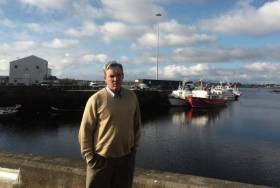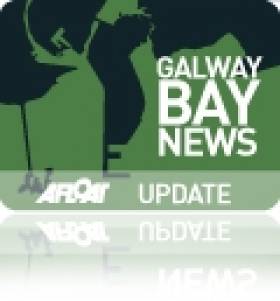Displaying items by tag: Galway County Council
Galway County Council Agree to Consultation on Proposed Beach Bye-Laws
Galway County Council has agreed to consult with watersport bodies on proposed beach bye-laws which would have banned all activities apart from swimming on 24 beaches.
Officials and councillors agreed that watersport representative bodies would meet the county council’s Strategic Policy Committee Meeting early next year.
The meeting will discuss zoning, maps and “any other issues with a view to amending or otherwise the proposed bye-laws”.
Opponents of the bye-laws welcomed the development, stating that “with this broad agreement in place and no opposition, Galway County Council are showing very positive signs and ‘goodwill’”.
“We all look forward to engaging with them positively next year,” it said.
Under the draft legislation, sailing, kayaking, windsurfing, stand-up paddling and horse-riding would be banned at 24 beaches extending from the Aran islands to Connemara to Portumna with a risk of fines of up to €1900.
The by-laws propose that “no person shall windsurf on sailboards or kite-surf on kiteboards or surf on a surfboard or use a canoe, kayak, dinghy, stand-up paddle board or water bike in close proximity to bathers”.
The draft bye-laws also propose banning dog walking between 11 am and 7 pm and ensuring dogs are on a leash outside these hours during summer months.
Bans on the use of inflatable water devices on open water, and personal watercraft, power craft and fast power craft within 300m of the low water mark at the time of use, “except for the purpose of rescue”, are also proposed.
Calls For Deep Water Investment in Connemara to Attract Cruise Ships
#IrishHarbours - From across the world tourists writes The Connacht Tribune could be flocking into Connemara by – if a proposal to carry out multi-million euro works at Rossaveal Harbour is adopted.
But funding, to the tune of around €80 million, would first need to be allocated to provide a deep sea port at Rossaveal so that it can accommodate cruise liners.
A committee has been in place for several years to try and progress this initiative – and while facilities at the harbour have improved considerably over the past ten or 15 years, it still cannot accommodate big ships.
The matter came before a meeting of Galway County Council during where Councillors heard that last summer alone saw up to 7,500 passengers arrived on cruise ships into Killybegs in Donegal which has the capacity to accommodate the liners.
The matter was raised by Cllr Joe Folan from Rosmuc as he called on the Government to provide a deep sea port so that bigger ships, such as cruise liners, could dock and bring even more tourists to the region.
The independent councillor explained that the deep sea harbour at Killybegs was now proving a success story and the same could be repeated at Rossaveal, which located on the far side of Inverin out of Galway city.
To read more on the story click here.
No More Long Stays at Kinvara Pier Says Galway Council
#GALWAY BAY NEWS - Galway County Council has prohibited the parking of camper vans and yachts on Kinvara Pier "for the purpose of habitation".
The new by-law came into effect last month came following a number of complaints that camper vans and boats were remaining for extended periods in the vicinity of the pier.
However the move does not affect vessels used for "bona file navigation", after the ISA lobbied to protect the interests of visiting boaters wishing to use the pier for overnight stays.





























































